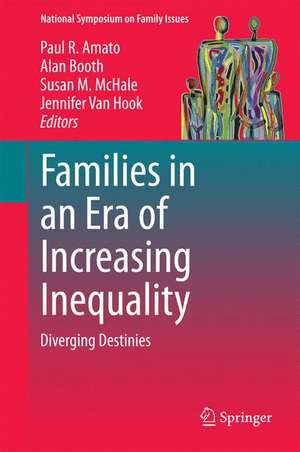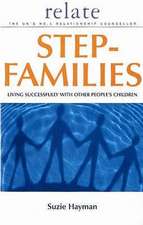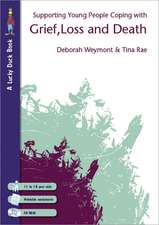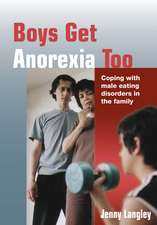Families in an Era of Increasing Inequality: Diverging Destinies: National Symposium on Family Issues, cartea 5
Editat de Paul R. Amato, Alan Booth, Susan M. McHale, Jennifer Van Hooken Limba Engleză Hardback – 23 oct 2014
Families in an Era of Increasing Inequality probes the complex relations between social inequality and child development and examines possibilities for disrupting these ongoing patterns. Experts across the social sciences track trends in marriage, divorce, employment, and family structure across socioeconomic strata in the U.S. and other developed countries. These family data give readers a deeper understanding of how social class shapes children's paths to adulthood and how those paths continue to diverge over time and into future generations. In addition, contributors critique current policies and programs that havebeen created to reduce disparities and offer suggestions for more effective alternatives. Among the topics covered:
- Inequality begins at home: the role of parenting in the diverging destinies of rich and poor children.
- Inequality begins outside the home: putting parental educational investments into context.
- How class and family structure impact the transition to adulthood.
- Dealing with the consequences of changes in family composition.
- Dynamic models of poverty-related adversity and child outcomes.
- The diverging destinies of children and what it means for children's lives.
| Toate formatele și edițiile | Preț | Express |
|---|---|---|
| Paperback (1) | 779.39 lei 43-57 zile | |
| Springer International Publishing – 23 aug 2016 | 779.39 lei 43-57 zile | |
| Hardback (1) | 785.42 lei 43-57 zile | |
| Springer International Publishing – 23 oct 2014 | 785.42 lei 43-57 zile |
Preț: 785.42 lei
Preț vechi: 957.83 lei
-18% Nou
Puncte Express: 1178
Preț estimativ în valută:
150.30€ • 156.03$ • 125.33£
150.30€ • 156.03$ • 125.33£
Carte tipărită la comandă
Livrare economică 24 martie-07 aprilie
Preluare comenzi: 021 569.72.76
Specificații
ISBN-13: 9783319083070
ISBN-10: 3319083074
Pagini: 300
Ilustrații: XIV, 242 p. 37 illus., 19 illus. in color.
Dimensiuni: 155 x 235 x 17 mm
Greutate: 0.54 kg
Ediția:2015
Editura: Springer International Publishing
Colecția Springer
Seria National Symposium on Family Issues
Locul publicării:Cham, Switzerland
ISBN-10: 3319083074
Pagini: 300
Ilustrații: XIV, 242 p. 37 illus., 19 illus. in color.
Dimensiuni: 155 x 235 x 17 mm
Greutate: 0.54 kg
Ediția:2015
Editura: Springer International Publishing
Colecția Springer
Seria National Symposium on Family Issues
Locul publicării:Cham, Switzerland
Public țintă
ResearchCuprins
I. Diverging Destinies for American Children.- Diverging Destinies Revisited.- Divergent responses to family inequality.- Diverging Destinies in Rural America.- Diverging Destinies Revisited: The Threat to Child Development and Social Mobility.- II .Social Inequality, Parenting, and Child Development.-Inequality Begins at Home: The Role of Parenting in the Diverging Destinies of Rich and Poor Children.- Subjective Rationality, Parenting Styles, and Investments in Children.- Inequality Begins Outside the Home: Putting Parental Educational Investments into Context.- Stressful Life Experiences and Contexts: The Effects on Parents and Parenting.- III. Social Inequality and the Transition to Adulthood.- Diverse Pathways: Rethinking the Transition to Adulthood.- The Transition to Adulthood Matters.- The Family Foundation: What do Class and Family Structure have to do with the Transition to Adulthood?.- Different Social Class Dimensions Play Different Roles in the Transition to Adulthood.- IV. Program and Policy Responses to Growing Family Inequality.- No Way Out: Dealing with the Consequences of Changes in Family Composition.- Struggling to Stay Afloat: Dynamic Models of Poverty-related Adversity and Child Outcomes.- The Diverging Destinies of Children and What it Means for Children’s Lives.-V. Reflecting on Diverging Destinies of American Families.- Reflecting on The Diverging Destinies of American Families: Policy Approaches as we Move Forward.
Recenzii
“The most appealing feature of the book is the inclusion of chapters from a wide range of disciplines including Economics, Psychology and Sociology. This diversity is stimulating and makes the book a thought-provoking and interesting volume. … In short, the edited volume is an inspiring collection of chapters from a diverse set of scholars. Its main contribution is to bring together different approaches on given topics, mostly without presenting new research.” (Diederik Boertien, European Journal of Population, February, 2016)
Notă biografică
Paul Amato, Ph.D., is the Arnold and Bette Hoffman Professor of Family Sociology and Demography at The Pennsylvania State University. He has received the Distinguished Career Award from the Family Section of the American Sociological Association, the Stanley Cohen Distinguished Research Award from the American Association of Family and Conciliation Courts, the Ernest Burgess Distinguished Career Award from the National Council on Family Relations, and the Distinction in the Social Sciences Award from Pennsylvania State University.
Alan Booth, Ph.D., is Distinguished Professor of Sociology, Demography, and Human Development & Family Studies at The Pennsylvania State University. He has been a senior scientist in Penn State's Population Research Institute since 1991. Dr. Booth has co-organized the university's National Symposium of Family Issues since its inception in 1993. He is the author of more than 100 scholarly articles, four books, and editor of 16 volumes. He was editor of Journal of Marriage and The Family from 1985-1991.
Susan McHale, Ph.D., is Director of the Social Science Research Institute and The Children, Youth, and Family Consortium and Professor of Human Development at The Pennsylvania State University. Her research focuses on children's and adolescents' family roles, relationships, and daily experiences and how these family dynamics are linked to youth development and adjustment.
Jennifer Van Hook, Ph.D., is Professor of Sociology and Demography and Director of the Population Research Institute at The Pennsylvania State University. Her work spans a variety of family-related topics, including extended family living arrangements, family poverty, cohabitation, inter-racial marriage, and fertility patterns, and has appeared in major journals such as the Journal of Marriage and the Family, International Migration Review, Social Forces, and Demography.
Alan Booth, Ph.D., is Distinguished Professor of Sociology, Demography, and Human Development & Family Studies at The Pennsylvania State University. He has been a senior scientist in Penn State's Population Research Institute since 1991. Dr. Booth has co-organized the university's National Symposium of Family Issues since its inception in 1993. He is the author of more than 100 scholarly articles, four books, and editor of 16 volumes. He was editor of Journal of Marriage and The Family from 1985-1991.
Susan McHale, Ph.D., is Director of the Social Science Research Institute and The Children, Youth, and Family Consortium and Professor of Human Development at The Pennsylvania State University. Her research focuses on children's and adolescents' family roles, relationships, and daily experiences and how these family dynamics are linked to youth development and adjustment.
Jennifer Van Hook, Ph.D., is Professor of Sociology and Demography and Director of the Population Research Institute at The Pennsylvania State University. Her work spans a variety of family-related topics, including extended family living arrangements, family poverty, cohabitation, inter-racial marriage, and fertility patterns, and has appeared in major journals such as the Journal of Marriage and the Family, International Migration Review, Social Forces, and Demography.
Textul de pe ultima copertă
The widening gap between the rich and the poor is turning the American dream into an impossibility for many, particularly children and families. And as the children of low-income families grow to adulthood, they have less access to opportunities and resources than their higher-income peers--and increasing odds of repeating the experiences of their parents.
Families in an Era of Increasing Inequality probes the complex relations between social inequality and child development and examines possibilities for disrupting these ongoing patterns. Experts across the social sciences track trends in marriage, divorce, employment, and family structure across socioeconomic strata in the U.S. and other developed countries. These family data give readers a deeper understanding of how social class shapes children's paths to adulthood and how those paths continue to diverge over time and into future generations. In addition, contributors critique current policies and programs that havebeen created to reduce disparities and offer suggestions for more effective alternatives. Among the topics covered:
Families in an Era of Increasing Inequality probes the complex relations between social inequality and child development and examines possibilities for disrupting these ongoing patterns. Experts across the social sciences track trends in marriage, divorce, employment, and family structure across socioeconomic strata in the U.S. and other developed countries. These family data give readers a deeper understanding of how social class shapes children's paths to adulthood and how those paths continue to diverge over time and into future generations. In addition, contributors critique current policies and programs that havebeen created to reduce disparities and offer suggestions for more effective alternatives. Among the topics covered:
- Inequality begins at home: the role of parenting in the diverging destinies of rich and poor children.
- Inequality begins outside the home: putting parental educational investments into context.
- How class and family structure impact the transition to adulthood.
- Dealing with the consequences of changes in family composition.
- Dynamic models of poverty-related adversity and child outcomes.
- The diverging destinies of children and what it means for children's lives.
Caracteristici
Examines the link between economic status and the well-being of men, women, and children Provides an interdisciplinary perspective Considers programs and policies Includes supplementary material: sn.pub/extras























